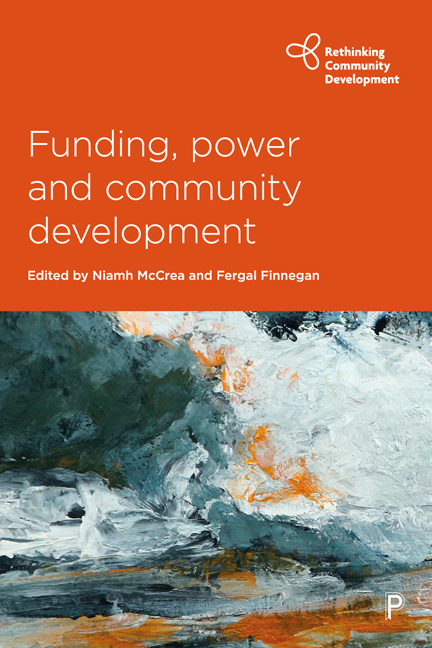Book contents
- Frontmatter
- Contents
- Series editors’ preface: Rethinking Community Development
- Acknowledgements
- Abbreviations
- Notes on contributors
- One Funding, power and community development: an introduction
- PART 1 New configurations of power and governance
- PART 2 Questions of state and grassroots democracy
- PART 3 Modes of agency and horizons of possibility
- Index
Twelve - Building alternative communities within the state: the Kurdish Movement, local municipalities and democratic autonomy
Published online by Cambridge University Press: 19 April 2022
- Frontmatter
- Contents
- Series editors’ preface: Rethinking Community Development
- Acknowledgements
- Abbreviations
- Notes on contributors
- One Funding, power and community development: an introduction
- PART 1 New configurations of power and governance
- PART 2 Questions of state and grassroots democracy
- PART 3 Modes of agency and horizons of possibility
- Index
Summary
Introduction
Since the mid-2000s, the Kurdish Movement has put increased focus on the development of alternative communities in the Kurdistan region in Turkey as part of an effort to establish ‘democratic autonomy’. This new political paradigm aims at developing an egalitarian, grassroots, democratic and ecological society within the Turkish state, and as such has been suggested as a peaceful solution to the Kurdish Question. Rather than calling for secession, it aims at solving the conflict as well as tackling economic exploitation, gender inequality and ecological destruction by empowering communities through participatory direct democracy. This model, the theoretical basis for which was developed by the imprisoned leader of the Kurdistan Workers’ Party (PKK), Abdullah Öcalan, redefines the goal of self-determination as the deepening of democracy and abandons the previous goal of national independence. It aims at empowering society vis-à-vis the hostile centralist Turkish state. Hence, it has opened up space for the development of a range of non-violent political practices and led to a proliferation of formal and informal associations, institutions and assemblies in broader civil society, which we understand as emancipatory community development. Even though the Kurdish Movement does not officially use this term, it chooses a variety of different practices of community development to strengthen communities at a local level in tackling issues which result from discriminatory and assimilative politics of the central state. In this case, community development provides a way out of the binary between submission and secession. These enable communities to exercise more control over issues relevant to them. In this sense, they are challenging a centralist state through grassroots democratic practices within the law.
In the context of democratic autonomy, the Kurdish Movement speaks of establishing a confederal union of communities. The term ‘community’ used here is neither reducible to an ethnic group nor to territorial proximity, but is meant in a pluralistic sense that includes the representation of all sorts of social groups such as youth, women, different professions, as well as language and faith groups. At the same time, the concept of the union of communities is also a way to address the dispersion of the Kurds over four different nation states – Turkey, Iran, Iraq and Syria – as well as in the diaspora.
- Type
- Chapter
- Information
- Funding, Power and Community Development , pp. 177 - 192Publisher: Bristol University PressPrint publication year: 2019

